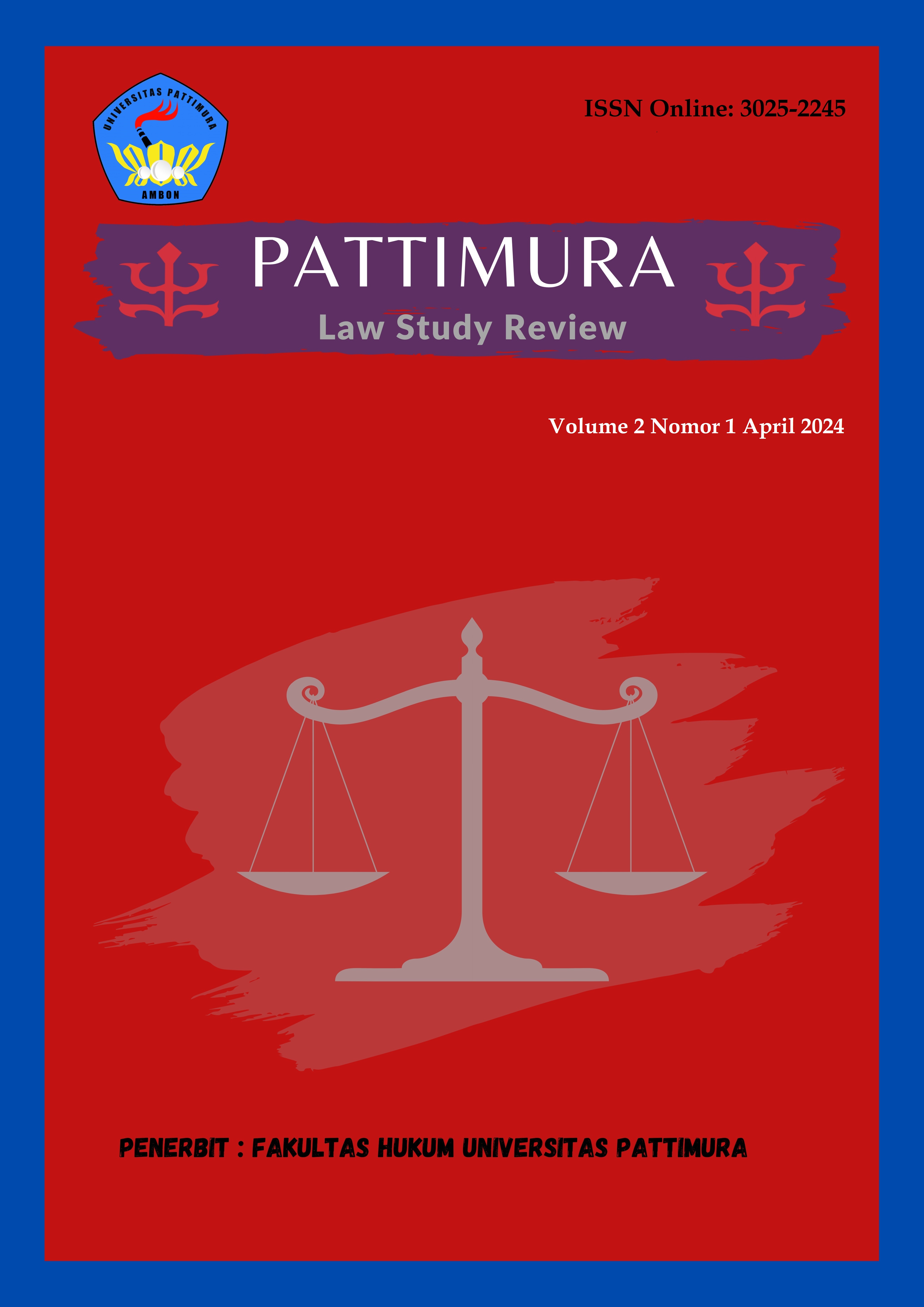Kedudukan Hak Cipta Sebagai Jaminan Hutang Pada Perjanjian Kredit Bank
Abstract
ABSTRACT: Regulation of the Government Number 24 Year 2022 on Creative Economy, Article 7 in this regulation states that in the implementation of intellectual property-based financing schemes, financial institutions, whether banks or non-bank financial institutions, are allowed to use intellectual property as collateral for loans. In its implementation, there are still various challenges and obstacles faced, including the difficulty of determining the value of copyright, the lack of clear concepts related to feasibility, and the absence of execution rules from the Bank Indonesia (BI), Financial Services Authority (OJK), and Banking related to intellectual property assets as loan collateral. The method of research used is legal normative, which examines legal materials such as legislation, legal theory, and scholars' opinions to solve the problem being studied. The purpose is to find out and explain the position of copyright as collateral in bank credit agreements and the legal strength of copyright as collateral in bank credit agreements. The results of this research indicate that the position of copyright as collateral in bank credit agreements has been regulated in the Copyright Law and the Government Regulation on Creative Economy. However, its implementation is still hindered due to the lack of policies from Bank Indonesia (BI) and the Financial Services Authority (OJK).
Downloads
References
Maria Alfons, Implementasi Hak Kekayaan Intelektual Dalam Perspektif Negara Hukum, Jurnal legislalasi Indonesia, Vol. 14 No. 03 - September 2017
Reni Budi Setianigrum, “Mekanisme Penentuan Nilai Ekonomis dan Pengikatan Hak CIpta Sebagai Objek Jaminaan Fidusia”, Jurnal Media Hukum, Volume 23, Nomor 2, Desember 2016
Retno Puspo Dewi, Kekuatan Eksekutorial Sertifikat Jaminan Fidusia bedasrkan Undang-Undang Nomor 42 Tahun 1999 tentang Jaminan Fidusia, Surakarta, Jurnal Repertorium Volume IV No.1 Januari 2017
Rizka Astri Husen, Nancy Silvana Haliwela, AgustinaBalik, Pertanggungjawaban Debitur Terhadap Kreditur Pada Perjanjian Kredit Dengan Jaminan Fidusia, PATTIMURA Law Study Review,Volume 1, 2023
Sulasi Rongiyati, Pelindungan Hukum Hak Kekayaan Intelektual Pada Produk Ekonomi Kreatif, Negara Hukum: Vol. 9, No. 1, Juni 2018
Buku
H. Malayu S.P Hasibuan, 2011, Dasar-dasar perbankan, cet. Ke 9, PT. Bumi Aksara, Jakarta.
H. Malayu S.P Hasibuan, Dasar-dasar perbankan, PT Bumi Aksara, 2009
Johannes Ibrahim dalam Widya Marthauli Handayani, Keberlakukan Hukum Hak Cipta Sebagai Objek Jaminan Fidusia Berdasarkan Undang-Undang Nomor 28 Tahun 2014 tentang Hak Cipta, Bandung: Fakultas Hukum Universitas Katolik Parahyangan, 2019 Suryadi Bakry, U. (2019). Hukum Humaniter Internasional. Jakarta: Kencana
Muhammad Djumhana, Hukum Perbankan di Indonesia, Citra Adiya Bhakti, Bandung, 2000
Suhariningsih, 2011, Analisis Yuridis TerhadapPerjanjian Kredit Dengan Jaminan “Barang Inventory” dalam Bingkai Jaminan Fidusia, Cet ke I, Wisnuwhardana Press, Malang
Yusran Isnanini, Buku pintar HAKI, Cetakan pertama, Ghalia Indonesia, Bogor, 2010.
Copyright (c) 2024 Muhammad Rizki Prayogi, Nancy Silvana Haliwela, Marselo Valentino Geovani Pariela (Author)

This work is licensed under a Creative Commons Attribution-NonCommercial 4.0 International License.
Authors who publish their manuscripts in this Journal agree to the following conditions:
- The copyright in each article belongs to the author, as well as the right to patent.
- Authors are able to enter into separate, additional contractual arrangements for the non-exclusive distribution of the journal's published version of the work (e.g., post it to an institutional repository or publish it in a book), with an acknowledgment of its initial publication in this journal.
- Authors are permitted and encouraged to post their work online (e.g., in institutional repositories or on their website) prior to and during the submission process, as it can lead to productive exchanges, as well as earlier and greater citation of published work.
- Authors have the right to self-archiving of the article (Author Self-Archiving Policy)













